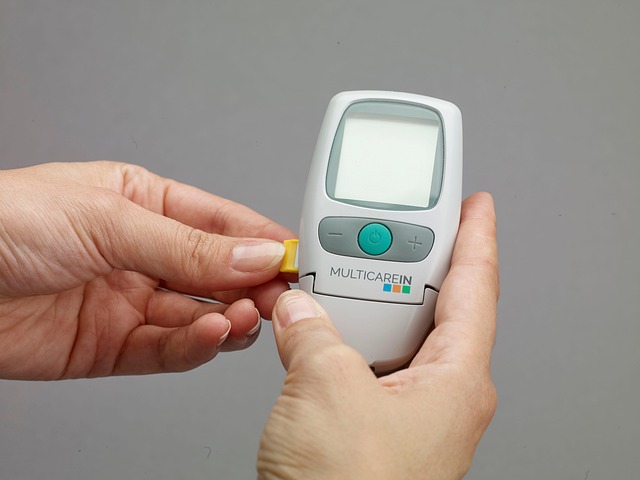A testosterone blood test is a vital tool for assessing men's hormone health, measuring levels of the 'master hormone' that regulates muscle mass, bone density, sex drive, and energy. Crucial for diagnosing conditions like hypogonadism and testosterone deficiency, it also aids athletes and those considering hormone replacement therapy (HRT). Test preparation includes avoiding strenuous exercise and certain supplements, while results are interpreted based on normal ranges (270-1070 nmol/L for adult men) and professional guidance for adjustments.
“Uncover the power of a comprehensive testosterone blood test – a key step towards optimal hormone health. This guide explores the essential role of testosterone in men’s well-being and why testing is crucial. From understanding hormone dynamics to interpreting results, we demystify the process. Learn about the benefits, from athletic performance to overall vitality. Prepare for your test with our practical tips and gain insights into maintaining healthy levels. Discover how this simple procedure can be a game-changer for your energy, libido, and overall health.”
- Understanding Testosterone: The Hormone and its Role in Men's Health
- Why Get a Testosterone Blood Test? Benefits and Key Indicators
- Preparing for the Test: What to Expect Before and During the Procedure
- Interpreting Results: Decoding Your Testosterone Levels and Next Steps
Understanding Testosterone: The Hormone and its Role in Men's Health
Testosterone is a key hormone in men, playing a pivotal role in various aspects of overall health and well-being. Often referred to as the ‘master hormone,’ it is responsible for regulating a multitude of bodily functions, including muscle mass, bone density, fat distribution, sex drive, and energy levels. A testosterone blood test is a crucial tool in assessing a man’s hormonal balance and identifying potential health issues. This simple procedure allows for a comprehensive analysis of testosterone levels, providing valuable insights into an individual’s reproductive and general health.
By measuring testosterone in the blood, men can gain a deeper understanding of their hormone health. A balanced testosterone level is essential for maintaining optimal physical performance, cognitive function, and emotional well-being. However, as age progresses, natural testosterone production tends to decline, leading to potential symptoms like decreased energy, muscle mass, and libido. The testosterone blood test serves as an early detection method, enabling men to take proactive steps towards managing their hormone health and addressing any deficiencies or imbalances.
Why Get a Testosterone Blood Test? Benefits and Key Indicators
A testosterone blood test offers a direct way to assess your hormone health, especially for men concerned about low testosterone levels or women seeking reproductive insights. This simple procedure provides crucial data on your hormonal balance and can be a game-changer in understanding and optimizing your overall well-being. By analyzing blood samples, healthcare professionals can uncover key indicators of hormone function.
The benefits are multifaceted: it aids in diagnosing conditions like hypogonadism or testosterone deficiency, which can lead to fatigue, muscle loss, and decreased libido. Moreover, monitoring testosterone levels is essential for athletes and individuals considering hormone replacement therapy (HRT), as it helps determine the right dosage for safe and effective treatment. Key indicators include total testosterone, free testosterone, and bioavailable testosterone, each offering unique insights into different aspects of hormonal activity.
Preparing for the Test: What to Expect Before and During the Procedure
Preparing for a testosterone blood test is straightforward but involves some specific steps to ensure accurate results. Before the procedure, it’s recommended to avoid strenuous exercise and certain foods or supplements that might interfere with hormone levels. This typically includes avoiding high-protein meals, vitamin C, and any herbal supplements known to affect testosterone readings. Additionally, getting adequate rest the night before is crucial as sleep quality can impact hormone production.
During the test, a healthcare professional will take a blood sample, usually from a vein in your arm. You may experience slight discomfort or a pricking sensation, similar to a typical blood draw. The process is swift, and the technician will ensure your comfort. It’s advisable to stay calm and relaxed before and during the procedure to avoid any potential stress responses that could influence the test outcomes.
Interpreting Results: Decoding Your Testosterone Levels and Next Steps
Understanding your testosterone blood test results is a crucial step in interpreting your hormone health. The levels are typically measured in nanomoles per liter (nmol/L), and what’s considered optimal can vary based on age and individual factors. Generally, levels between 270-1070 nmol/L are considered normal for adult men. However, anything below 300 nmol/L might indicate low testosterone, while levels above 1200 nmol/L could signal potential health risks.
If your results fall outside the range, it’s essential to discuss them with a healthcare professional who can help you understand what these numbers mean for your overall health. They will consider factors like age, lifestyle, and medical history to determine if any changes are needed. The next steps might include lifestyle adjustments like improving sleep quality, adopting a balanced diet rich in zinc and vitamin D, or consulting a specialist for further guidance on hormone replacement therapy, if necessary.
A testosterone blood test is a powerful tool for anyone looking to optimize their hormone health. By understanding your testosterone levels and the key indicators discussed in this article, you can take proactive steps towards improved well-being. Remember, a comprehensive analysis enables you to make informed decisions about your health and unlock your full potential. So, why wait? Take control of your hormone balance with a simple, effective testosterone blood test today.
